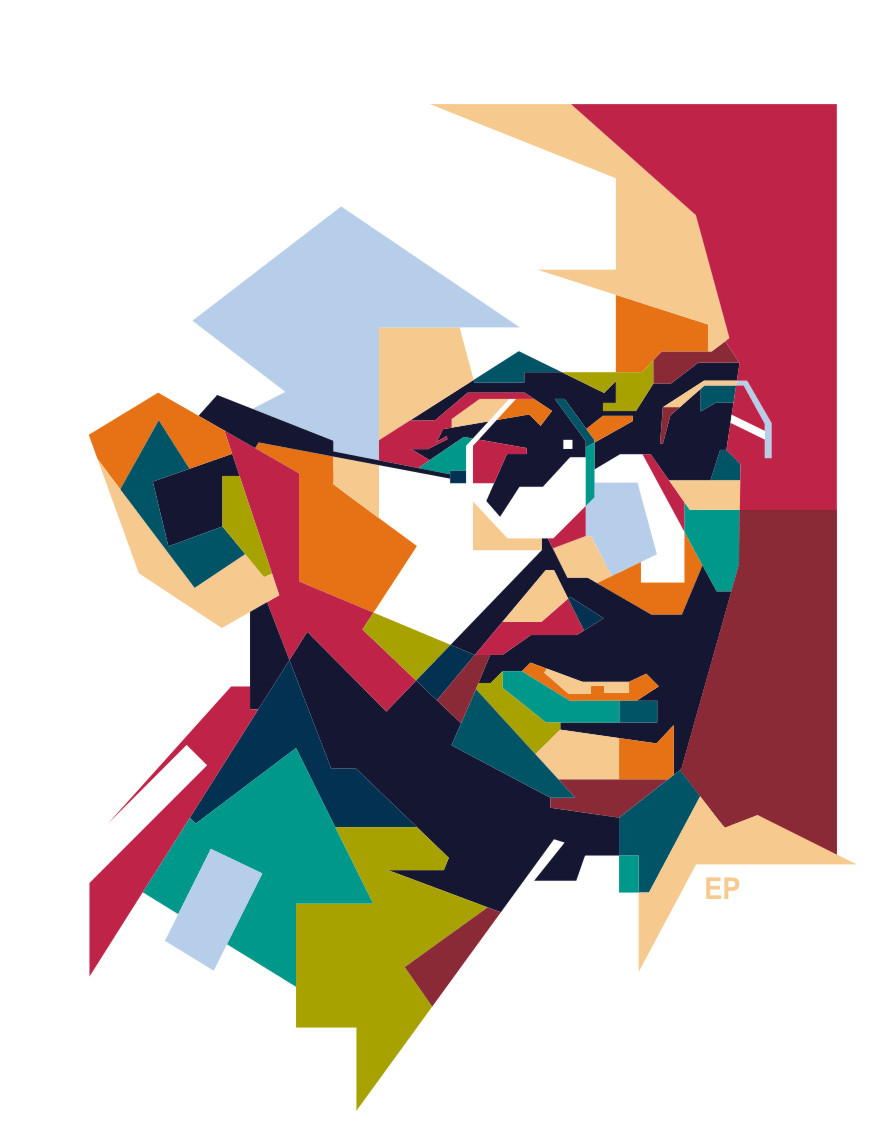The idea of Gandhi.
Today marks the 150th birth anniversary of Mahatma Gandhi. The man was killed, his followers confused and his ideals vanquished in an act of violence. But the question remains - what did he stand for? If it was an idea, is it possible to kill an idea?

His killers wanted to demonstrate the untenability of non-violence and that force is the ultimate arbitrator of justice. This justice is nothing but the dominant view of a society. If the society is impatient enough to listen to its own diversity, it is bound to act psychotic forever, caught in its own circles - eating up its own children.
We saw this in the partition riots. Then in numerous bigoted acts of the nascent state of Pakistan. In India, despite the non-cooperation of the state, rogue elements made it a point to evoke our primordial identities to conjure up ghoulish orgies of violence every once in a while.
Irrespective of being Hindu or Muslim, India’s children fell rotting in our streets falling prey to this hatred. Is Gandhi still relevant? What about the idea of Gandhi?
Much has been written about Gandhi. Apart from the obvious hagiographies, we see critics abound from both left and right. How he sabotaged the Poona Pact or how he was too pro-muslim. My intention is not to vindicate Gandhi for his political stances or even ambitions. But to ferret out the idea of Gandhi from the noise - of what his greatest legacy is.
Gandhi led the biggest Muslim movement in the history of India - the Khilafat. Then he was chastised by Jinnah for mixing religion in politics. Jinnah’s intellectual distaste for religion betrayed his lack of roots in the masses. Gandhi, shrewdly realised the true nature of religion. This is a much nuanced view that stand in contrast to culture blind Atheism.
Religion is an outgrowth of culture. We tend to believe otherwise. Merely that a person primarily identifies with a religion doesn’t speak anything of her natural affinities or allegiances. Jinnah and Nehru were right in believing that politics pollutes religious discourse. Gandhi’s idea was to ‘cleanse’ political sphere with religion.
And his greatest weapon? Identities.
Gandhi understood the power of identities. He rightly diagnosed the problem with contemporary religion - the prominence of identity over the supposed spiritual benefits of the same.
When Gandhi finally returned from East Bengal post partition, living in Delhi, he was heckled at prayer meeting for including Islamic texts. He suspended it and went on a fast till the meetings was resumed with Islamic rituals. He liberally used Bible to pep up the offerings. The syncretism he championed was nothing but a conscious choice to construct a common minimum programme.
For if religion is to be decoupled from the entrenched elite, the bahujan must be shown how similar they are to each other. Despite all these religious paraphernalia that they sport, to the core they are essentially the same people.
If religion is the unwritten constitution of the masses, how do you amend it? It is one thing to give lofty talks about progress. It is another thing to actually negotiate the complex mazes of society to implement them. Gandhi got his hands dirty with the latter. It earned him many enemies in all the quarters conceivable.
The idea of Gandhi is in experimentation and a persistent quest to unearth Truth. This Truth is beyond the multitudes of ideological dimensions. Truth unfortunately, is evasive by nature.
It helps to see the fundamental nature of society at this point.
Even if a people is to adopt certain ideologies as their dearest, they are to move away from it at a later point of time. We might adopt Socialism at one juncture, only to ditch it for a different one later. In this ever evolving yin-yang like world, the only meaning of life is to understand what the underlying reality is. This is the quest for truth.
But alas, this can never be complete. Poor Gandhi kept doing this till his very end. But while doing it, he taught us how to do it authentically and learn a lot in the process.
This learning should come handy in this neoliberal, consumerist world that teaches us that the purpose of life is in rapacious consumption. To resist the temptation of this beast, we ought to have strong moral foundations upright in the quest for Truth. Gandhi comes to rescue here.
Despite the popular notion of a dogmatic Gandhi, he was surprisingly rational. His overtures into the religious space was nothing but an effort to reconcile the extremities.
Of course, we need militant atheists and all hues of people here, but we need people who could build bridges as well. In this constant give and take cultural diffusion that defines our society, we need people who could mix up religions so that the fence sitters can actually see how similar all these religions are. Gandhi was doing exactly this.
Despite his incorrect interpretations and his actions as a shrewd politician, Gandhi is still relevant. What sets him apart is his ability to persist with experimentation.
The conclusions doesn’t matter, but this conviction to be truthful to oneself is an ideology that has paid rich dividends to (wo)mankind. Modern science has its firm footing in this.
His conviction to go forward with his experimentations at whatever cost is a rich template that could help us pursue the life’s goals that we may set for ourselves.
I am convinced that life isn’t about the goals, but the journey that we undertake right till the end. I maintain that enlightenment is no momentary psycho-neuro-spiritual event as many seers claim. Enlightenment is nothing but an attitude and a way of life.
Gandhi was enlightened. It’s upon us to choose our own paths.
Yes, Gandhi is dead. But long live the Gandhi!
